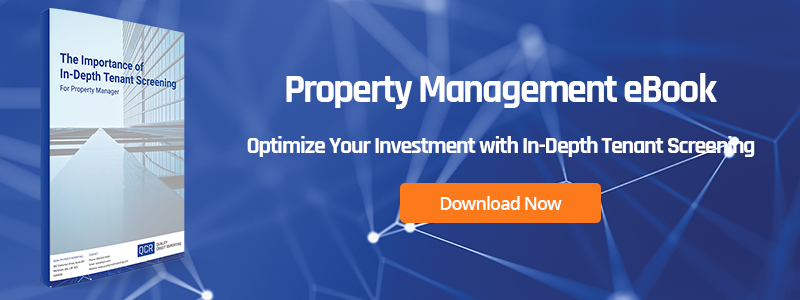A change in corporate status, increased debt, defaulting with the Canada Revenue Agency and creditors, decreased liquidity, delinquent activity, a change in the corporate name or in the jurisdiction in which your tenant can do business - these are just some of the many changes that could occur from the time your tenant signed their original lease to the time they sign their renewal.
Being unaware of these changes could be detrimental to your continued success in property management.
That is why you need to treat each renewal tenant as you would a prospective tenant, screening them prior to renewing.
What Information is Required for a Fresh Assessment of Risk?
When looking into a renewal tenant’s current situation, you want to compare new information to historical data, to uncover changes and problematic patterns.
Key areas of interest include:
Corporate Profile - Discover any corporate name changes/amalgamations and confirm the tenant’s current status with Companies Branch and Corporate Tax Branch.
PPSA (lien Search) - Gather updated information on secured borrowing facilities, banking relationships and current tax arrears.
Bankruptcy Search - Confirm any recent bankruptcies, consumer proposals, debt consolidation orders, commercial proposals, receiverships or CCAA filings.
Bank Rating - Obtain new banking information, confirming current deposit account and borrowing facility balances.
Trade References - Update credit ratings with suppliers and verify current account balances, credit limits and payment experience.
Commercial Credit File - Uncover any changes in payment experience or derogatory information that could signal future problems.
Consumer Credit File (when applicable) - Confirm current credit card, loan, line of credit and lease balances of key corporate individuals.
Collection Claims - Uncover collection actions filed during the course of the lease.
Legal Actions/Judgments - Uncover legal actions filed or judgments obtained during the lease.
Historical Information Search - Compare current information acquired to historical information on file, uncovering changes in payment trends, credit limits and bank balances.
Do I need to Get Consent before Screening Renewal Tenants?
Asking your current tenant for an updated credit application so that you can gather subsequent credit data can be an uncomfortable conversation. Fortunately, you may be able to avoid the conversation entirely.
If you screened your tenant prior to them signing their original lease, you may be able to use the original credit application, if there was a clause authorizing additional checks throughout the duration of the lease, as is the case with QCR credit applications.
If this was not included as part of the original credit application, you will have to obtain their consent for additional screenings, and it is advised that a new clause be added for future checks.
Is Screening Renewal Tenants Legal?
Landlords have an absolute right to conduct lawful renewal tenant screening in order to choose the best candidate. The key to making the screening lawful is informed consent, which is obtained prior to the commencement of the investigation, or was provided at the time of initial lease.
Why should the Property Manager outsource this service?
Tenant screening is a time consuming and detailed task that requires highly specialized knowledge and sources of information.
It is also subject to numerous legal regulations. Many property managers have found that it is an inefficient use of their time and resources to attempt to perform a function that a specialist can do more efficiently and cost-effectively.
That is where we come in. For more information on how we can help you evaluate a renewal tenant, contact us today. We would be happy to answer any questions you may have.
Tags: Property Management





